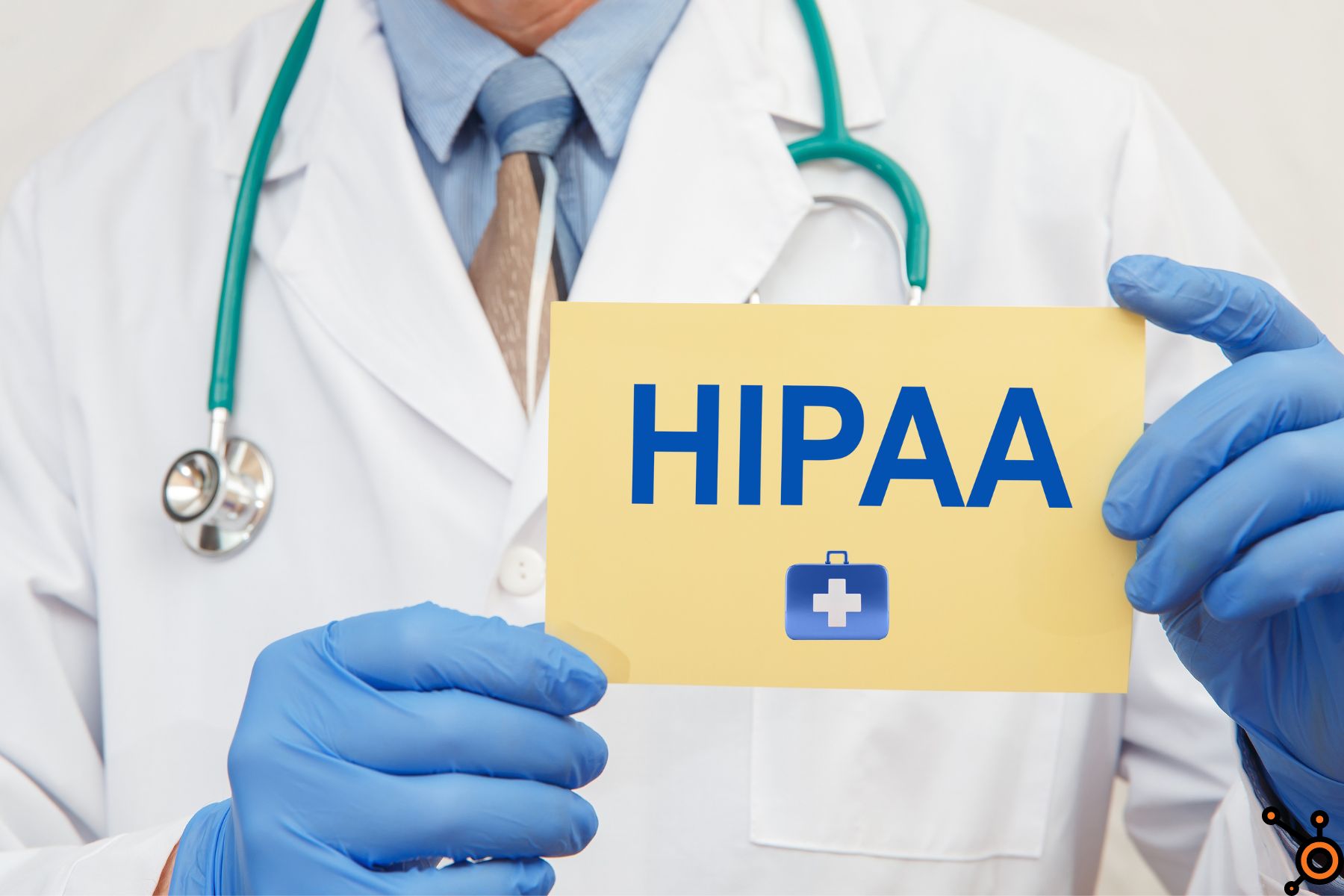Blog Post
Is HubSpot HIPAA Compliant – Sensitive Data Compliance Guide in the USA

Data security is a top priority for industries like healthcare, where the protection of sensitive information is a part of the compliance.
One of the key regulations governing healthcare data is the Health Insurance Portability and Accountability Act (HIPAA), which sets stringent standards for safeguarding personal health information (PHI).
For businesses that handle this type of data, compliance with HIPAA is not just a recommendation—it’s a legal requirement.
With HubSpot being one of the most widely used customer relationship management (CRM) systems in the world, many healthcare professionals and organizations ask the crucial question: Is HubSpot HIPAA compliant?
In this guide, we’ll explore the complexities of HubSpot HIPAA compliant process, discuss the use of HubSpot for handling sensitive data, and examine whether its suitable for healthcare organizations subject to HIPAA regulations.
What is HIPAA and Why Does It Matter?
Before we delve into Sensitive data HubSpot, it’s important to understand what HIPAA is and why it’s important for organizations managing healthcare data.
HIPAA, enacted in 1996, is a U.S. law designed to protect sensitive patient data.
It applies to “covered entities” like healthcare providers, health plans, and healthcare clearinghouses, as well as their “business associates” (third parties that process data on their behalf).
Compliance with HIPAA involves implementing measures that ensure the privacy and security of PHI.
HIPAA Compliance Features
The Privacy Rule
Ensures that PHI is used only for permitted purposes.
The Security Rule
Requires covered entities to safeguard PHI through technical, physical, and administrative safeguards.
The Breach Notification Rule
Mandates the reporting of any data breaches involving PHI.
Non-compliance with HIPAA can result in hefty fines, legal action, and a loss of trust with patients and clients.
Thus, it’s crucial for any CRM like HubSpot, to align with these standards if it’s to be used in healthcare settings.
Is HubSpot HIPAA Compliant?
The answer is no, HubSpot is not HIPAA compliant.
However, let’s break this down in detail.
HubSpot, as a marketing, sales, and service platform, provides a variety of tools that allow businesses to engage with their customers.
While it excels in helping organizations manage customer relationships, it is not certified as HIPAA compliant out of the box.
Why HubSpot Is Not HIPAA Compliance
HubSpot does not currently offer a Business Associate Agreement (BAA) for its standard CRM.
A HubSpot BAA is a contract between a covered entity and a business associate that dictates the handling of PHI, making it a core component of HIPAA compliance.
Without a signed HIPAA HubSpot BAA, an organization cannot legally use HubSpot to store or process PHI.
Is HubSpot CRM HIPAA Compliant – How Does HubSpot Handle Sensitive Data?
Despite not being HIPAA compliant, HubSpot offers security features that protect data, though not tailored to meet HIPAA’s unique requirements.
HubSpot encrypts data in transit and at rest, offers two-factor authentication (2FA), and provides advanced user access controls.
These measures protect against data breaches and unauthorized access.
However, without a BAA, you cannot use HubSpot for PHI-related data under HIPAA.
Healthcare organizations must refrain from storing any Sensitive data in HubSpot that qualifies as PHI.
This includes but is not limited to patient names, medical records, insurance information, and any identifiable health information.
When Can Healthcare Companies Use HubSpot?
Healthcare organizations can still use HubSpot in capacities that don’t involve PHI. For example:
Marketing Automation
HubSpot is excellent for running marketing campaigns, tracking leads, and engaging with potential clients—provided no PHI is involved.
Customer Support
HubSpot’s ticketing and service tools can be used for non-sensitive inquiries.
Sales Management
HubSpot can manage client relationships if PHI is not required.
Alternatives to HubSpot HIPAA Compliance
If your organization needs a CRM that is HIPAA compliant, there are alternatives to HubSpot that offer the necessary features to handle PHI:
Salesforce Health Cloud
Salesforce offers a healthcare-specific solution, and it provides a BAA, making it a HIPAA-compliant CRM for managing patient data.
Zoho CRM
Like Salesforce, Zoho CRM offers a HIPAA-compliant option with a BAA for businesses that need to store and process PHI.
Pipedrive (with BAA)
Pipedrive offers healthcare organizations the option to sign a BAA, making it another CRM option that meets HIPAA requirements.
How to Ensure HIPAA Compliance When Using HubSpot
Although HubSpot HIPAA compliance is not guaranteed, there are steps healthcare organizations can take to ensure they remain compliant when using the platform for non-sensitive purposes:
Segment Data
Ensure that PHI and other sensitive data are stored in a separate, HIPAA-compliant system.
Use HubSpot only for data that doesn’t fall under HIPAA’s scope.
Restrict Access
Limit who can view and access certain data within HubSpot.
By setting permissions and access controls, you can minimize the risk of inadvertently handling sensitive information.
Secure Integrations
If you integrate HubSpot with other systems, ensure that the data flow between these systems is secure, and PHI is never transferred to or from HubSpot.
Implement Security
Even for non-HIPAA-sensitive data, implementing security measures—like two-factor authentication (2FA), regular audits, and encryption—can help protect your organization’s information.
Can HubSpot Become HIPAA Compliant in the Future?
HubSpot has not ruled out the possibility of becoming HIPAA compliant in the future.
As demand grows from healthcare companies, HubSpot may explore options like providing a HIPAA-compliant version of its platform or offering a BAA for those who need it.
Conclusion – Is HubSpot HIPAA Compliant?
If your organization is primarily focused on marketing, sales, or customer service outside of HIPAA-regulated data, HubSpot can be an effective tool.
But if PHI is involved, it’s crucial to choose a CRM system designed with HIPAA compliance in mind, such as Salesforce Health Cloud or Zoho CRM.
Always consult with your legal or compliance team to ensure that your organization adheres to all HIPAA regulations when selecting and using a CRM system like HubSpot.
Sensitive Data HubSpot – FAQs
Is HubSpot now HIPAA compliant in 2024?
As of 2024, HubSpot is not fully HIPAA compliant. It does not offer a Business Associate Agreement (BAA), which is required for HIPAA compliance when handling Protected Health Information (PHI).
Does my CRM need to be HIPAA compliant in the USA?
Yes, if your CRM handles Protected Health Information (PHI) in the USA, it must be HIPAA compliant. This includes ensuring that the CRM meets HIPAA’s security and privacy standards, and a Business Associate Agreement (BAA) is in place with the provider.
Is my data safe with HubSpot CRM?
Yes, your data is safe with HubSpot CRM, as it offers security features like encryption, two-factor authentication, and user access controls.
However, it is not suitable for storing sensitive data like Protected Health Information (PHI) since HubSpot is not HIPAA compliant.
Is Salesforce HIPAA compliant in USA?
Yes, Salesforce can be HIPAA compliant in the USA if configured correctly.
Relevant Guides
Choosing a Content Management System
How to Transform Form Data to Custom Objects in HubSpot
How to Delete an Invoice on HubSpot




